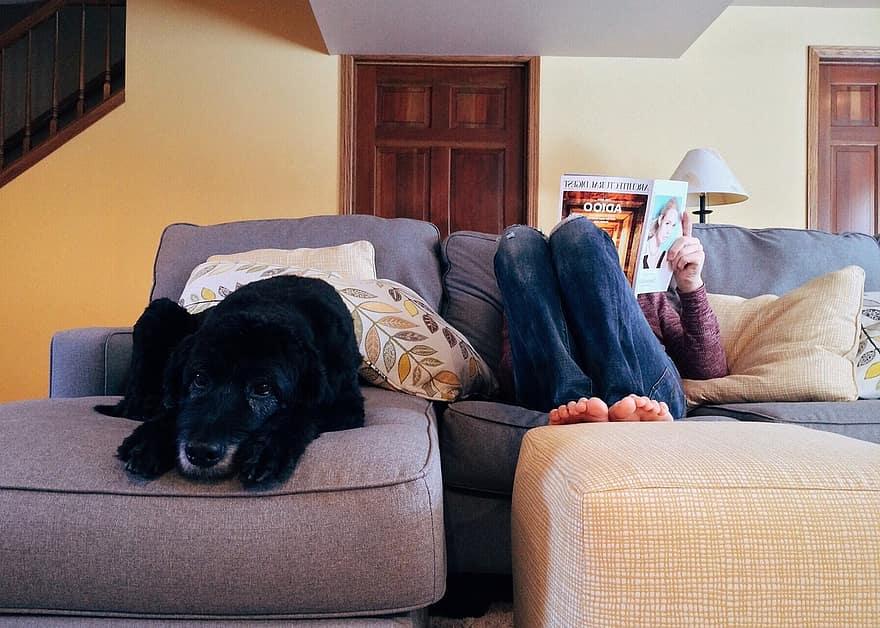
But that doesn’t mean that buying a property with tenants doesn’t come with its own risks. The tenants and former landlord had their own way of doing things that may differ from yours. The transition to a new landlord marks an adjustment for everyone, but often turns into a lucrative investment for buyers.
Before you jump in and invest, make sure you know what to look for in your inherited tenants, and the pros and cons of buying a home occupied by tenants from the start.
Implications of Buying a Property with Tenants
Usually, when you buy an investment property, it’s vacant. Investors often have to fix it up to put it in rent-ready condition for tenants.
Some properties, however, sell with tenants living in them already. This means several things for you:
-
- Instant cash flow as you don’t have a lag time between purchasing and finding tenants;
- The turnkey property likely meets all local regulations and codes;
- The home should be in good, habitable condition, considering there are already tenants in it.
However, like any investment, you have to conduct your own due diligence. Don’t assume the property is in good condition or that the tenants are reliable. Confirm for yourself if the property is a good investment and that the tenants are respectful, low-impact, and consistent in paying their rents.
The Lease Agreement Survives the Sale
When you buy a property with tenants, you inherit the lease agreement signed with the old landlord. That means you can’t change the lease terms or rent prices, or kick out the inherited tenant. At least not until the least contract comes up for renewal.
At that point you can sign a new lease agreement with the tenant, to raise the rent or update other lease terms. Or not — in most states, you can non-renew the renter if you’d prefer to find a more reliable or lower-impact tenant. Just bear in mind that every state requires a different amount of advance written notice before the lease term ends, if you plan to raise the rent, non-renew the lease, or update other leasing terms.
The only exceptions to the tenant rule would be if the lease specified that the seller had the right to terminate the lease upon selling or transferring the property.
Before you buy a property with tenants, remember to check the lease term. Because the lease contract, like a lien, comes with the property.
Where to Find Turnkey Properties with Existing Tenants
Finding properties with tenants often proves a little more difficult than finding vacant properties, but here are a few places to look:
-
- Zillow – Filter your search for the area you want to invest in and type ‘tenant occupied’ in the keyword section to find homes with tenants.
- Property management companies – If you network with others in the industry, check with property management companies to see if they have any investors looking to sell.
- Word-of-mouth – Networking with people in the industry and outside of it may turn up tenant-occupied properties for sale.
- MLS listings – Using a real estate agent, you may find tenant-occupied properties listed on the MLS.
What Should Landlords Watch Out For?
Buying rental property with existing tenants brings a whole new set of issues to the table. Not only should you worry about the property condition and value, but you have to worry about the quality of the tenants too.
Keep the following in mind as you review the rental agreement and tenants.
Legal, Protective Lease Agreement
Read the lease agreement and/or have your attorney review it. Does it comply with local and state landlord-tenant laws? Are the terms fair to you and the tenant?
Verify the current lease meets all local tenant laws. Review it with your attorney so there aren’t any unpleasant (and expensive) surprises once you own the home.
Screen Existing Tenants Thoroughly
Screen the tenants as if they were applying anew. You have the right to review the tenant’s rental application, credit report, background check, and all other screening measures the seller took when the tenants first applied. Also verify their payment history and performance as renters. Do they cause the current landlord headaches? Ask as many questions as possible and ask for proof of the tenant’s payment history, rather than taking the seller’s word for it.
Also check for pets, both authorized and otherwise.
Inspect How the Tenants Treat the Property
See for yourself the condition the tenants keep the property in and how they care for it. Even though maintenance and repairs fall under the landlord’s responsibility, get a sense of how the tenants treat the property on a daily basis.
Also ask the seller about any insurance claims they made because of the tenant. Have there been any accidents or other tenant-caused reasons the seller had to file claims? Too many claims on a property could make it harder to secure (affordable) insurance yourself.
Verify the Security Deposit
The security deposit should transfer to you when you buy the property, so double check that it appears on the settlement statement. Make sure you feel comfortable with the amount collected, and that it doesn’t exceed local limits. If the lease mentions prepaid rent or any other deposits, ask for the money and receipts.
Check the security deposit amount. Is it the full amount allowed in your area? Some landlords accept a lower security deposit to fill the space. Tenants may be less likely to take care of the place with less to lose.
Pros of Buying a Property with Tenants
Buying a rental property with existing tenants comes with plenty of perks!
-
- Immediate cash flow – You don’t have any lag time between buying the property and collecting rent. You start earning immediate cash flow, which helps offset the rental property mortgage right away.
- Habitability & compliance – If the home currently has tenants, it should theoretically meet local codes. Never assume, though; hire a home inspector ensure the property is up to both your and the city’s standards before you invest in it.
- No major renovations necessary – You won’t have to invest money immediately into rehabbing or repairing the home. If tenants already live there, the home should be in livable condition, again in theory.
(article continues below)
Cons of Buying a Property with Tenants
-
- You must rely on the current landlord’s tenant screening – Taking on a bad tenant is not a good investment, but you must rely on the landlord’s screening process. Get as many details as you can regarding how the landlord screened the tenants to make sure they are a good fit for you.
- You’re stuck with the current rent – You can’t modify the existing lease, which means you must accept the current lease terms, including the rent. If the current landlord didn’t increase rents annually, this could leave you with unruly tenants not accustomed to annual rent hikes.
- Legal risk – Just because the home has tenants doesn’t mean the landlord follows the law. If there are issues with the home meeting specific codes, it could cost you more money fixing the home and/or dealing with legal battles.
Is Buying a Property with Tenants Right for You?
As the landlord, you take on the following immediately after taking possession of the property:
-
- Provide the tenants with running water and proper HVAC systems;
- Ensure all electric and plumbing systems are safe;
- Make sure the property is free of harmful toxins, including asbestos;
- Keep all common areas clean and safe;
- Make sure all foundational structures are safe, including stairs, walls, and flooring.
Do your due diligence and collect as much information as possible about the tenants and the property to ensure both perform well. The ready-to-go rental home with renters saves you the time and hassle of finding renters, a welcome perk for long-distance investors and hands-off investors.
But occupied properties can just as easily stick you with bad tenants who never pay rent on time or abuse the property. Whether you buy a property with existing tenants or a vacant unit, you still need to screen the tenants before moving forward.♦
Are you looking to buy a rental property already leased to tenants? Why or why not?
More Real Estate Investing Reads:
About the Author

G. Brian Davis is a landlord, real estate investor, and co-founder of SparkRental. His mission: to help 5,000 people reach financial independence by replacing their 9-5 jobs with rental income. If you want to be one of them, join Brian, Deni, and guest Scott Hoefler for a free masterclass on how Scott ditched his day job in under five years.



























Hey Brian. I was thinking about buying one with tenants. But the lease was frustrating and i gave up. Anyway… Thanks for the awesome article
I hear you Patrick. I’m sorry it didn’t work out!
Great article. Couldn’t be written better!
Thanks Aniyah!
Well, I think buying a property with tenants is good. As you will start getting income as soon as you buy the house.
I hear you Heidi, thanks for the comment!
We are considering buying a property my with tenants. Luckily they are on a month to month so we don’t have to be concerned with prior lease. That makes the deal more attractive, though the current rent is way under market, which also makes it complicated. Thx for a great article!
Keep us posted on the deal Brittany!
For me, it is better to broaden the horizon on buying turnkey properties with or without tenants. It’s the same steps as we did when we start buying non-tenant properties, we start from learning. Luckily, there are blogs like this to help us broaden our horizon! And I’m on a hunt for buying one w/ tenants. 😉
Glad to hear it Gaile!
I have an opportunity right now to buy a property with tenants but I don’t know how to get the loan or how it will affect the loan. An suggestions. Thanks
It shouldn’t affect getting a rental property loan, as long as the tenants are paying rents on time. If they’re not, lenders might look askance at it. Check out Visio or Kiavi as good rental property lenders.